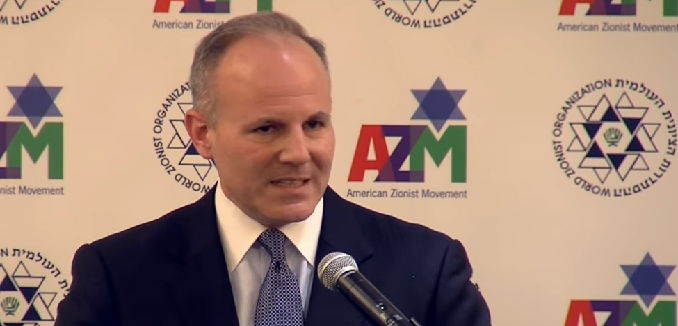The United States may reconsider its relationship with countries it deems anti-Israel, the U.S. Special Envoy for Monitoring and Combating Anti-Semitism said on Sunday, after an earlier shift in policy toward equating anti-Zionism with anti-Semitism.
Elan Carr said in an interview with Reuters that, “The United States is willing to review its relationship with any country, and certainly anti-Semitism on the part of a country with whom we have relations is a deep concern.”
Although the envoy declined to call out specific countries, Carr promised he would raise “that issue in bilateral meetings” all over the world. “That is something we are going to have frank and candid conversations about behind closed doors,” he added.
“I obviously can’t comment on diplomatic tools that we might bring to bear,” the envoy explained. “Each country is a different diplomatic challenge, a different situation, number one. And number two, if I started disclosing what we might do it would be less effective.”
Several administration officials have stressed in recent months that anti-Zionism is an expression of anti-Semitism, including U.S. Secretary of State Mike Pompeo, who raised the issue at the annual AIPAC Policy Conference in March.
Carr told Reuters that the equating of anti-Zionism with anti-Semitism “certainly breaks new ground” and that anti-Semitism is often hidden under the guise of anti-Zionism.
The shift in policy clarifies “something that a lot of us who are involved in the Jewish world and a lot of us who are proponents of a strong U.S.-Israel relationship have known for quite some time,” Carr observed. “One of the chief flavors of anti-Semitism in the world today is the flavor that conceals itself under anti-Zionism.”
The envoy’s position was established by the Global Anti-Semitism Review Act of 2004. On his first day in the congressionally-mandated post, Carr vowed to fight the Boycott, Divestment, and Sanctions (BDS) campaign and described the organized boycott of Israel as anti-Semitic.
[Photo: JBS / YouTube]




